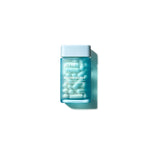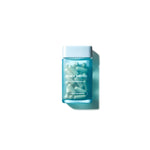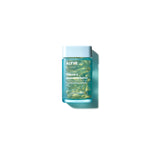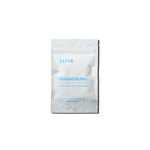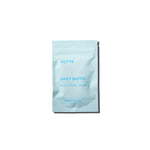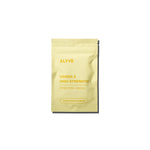The Benefits of Vitamin B3
Vitamin B3
Niacin (Nicotinamide), also known as Vitamin B3, helps convert the food you eat into energy, supports cardiovascular health by lowering cholesterol, and promotes healthy skin. It also plays a key role in DNA repair and stress management. This versatile vitamin is crucial for reducing inflammation, improving circulation, and supporting overall cellular function.
Key Highlights of B3
- Supports restful sleep
- Boosts energy metabolism
- Keeps your brain healthy
- Aids the natural hydration of your skin
- Supports heart health
- Lowers ‘bad’ cholesterol
- Reduces inflammation
Biochemistry Timeline
Vitamin B3 (niacin) may take up to 4 weeks for noticeable benefits, especially in those deficient. Regular intake supports overall well-being and helps alleviate deficiency symptoms.
What is B3?
Vitamin B3, commonly known as niacin, is a water-soluble vitamin, meaning that the body does not store it and thus requires a regular dietary intake. Niacin exists in three forms: niacin (nicotinic acid), niacinamide (nicotinamide), and inositol hexanicotinate, each of which has distinct effects on the body. While niacin might not be as well-known as some other vitamins, its importance for overall health and specific bodily functions cannot be overstated.
Niacin is crucial for converting food into energy, maintaining healthy skin, and supporting the nervous and digestive systems. One of the most significant health benefits of niacin is its ability to reduce levels of low-density lipoprotein (LDL), often referred to as ‘bad cholesterol.’ High levels of LDL cholesterol are a major risk factor for cardiovascular disease, including heart disease and stroke. By lowering LDL cholesterol, niacin helps reduce the risk of these conditions, contributing to better heart health.
In addition to its cholesterol-lowering properties, niacin also plays a role in enhancing brain function, reducing inflammation, and improving joint mobility in individuals with arthritis. Its versatility and wide range of benefits make niacin an essential component of a healthy diet. Ensuring adequate intake of Vitamin B3 through foods such as meat, fish, nuts, and grains, or through supplements if necessary, is vital for maintaining optimal health and preventing various diseases.
The Amazing Benefits of B3:
Energy Production
As with the rest of the B complex family, B3 helps to convert food into energy literally giving us fuel to go about our everyday lives. Niacin in particular is involved in maintaining the pathway that generates energy within our cells.
To enable B3 to work its magic, it needs to be converted into nicotinamide adenine dinucleotide (NAD) which helps more than 400 enzymes (biological molecules) to function. Pretty much every part of our body needs this to function bringing true meaning to the term ‘essential vitamin’.
Sleep Quality
Vitamin B3 is involved in the production of stress-related hormones and may help to regulate your sleep/wake cycle and reduce sleep disruptions.
Beneficial for sleep enhancement, research has shown an association between dietary intake of the amino acid tryptophan and niacin regarding insomnia and sleep quality. We get niacin through food but our bodies also make small amounts from tryptophan (which we also get from food).
Increasing vitamin B3 may help to regulate your sleep cycle and reduce sleep disruptions. In a study, when niacinamide supplementation was withdrawn for the group sleep efficiency dropped.
Anti-Inflammatory Properties
B3 helps your body to produce enzymes that are necessary for the health of the nervous system. Cell health can be harmed by stress but because niacin possesses potent antioxidant and anti-inflammatory properties it can improve cell survival under biological stressors.
Improving Brain Fog
As such, supplementing with B3 can improve your cognitive health by helping to reduce brain fog. Severe deficiency in B3 can cause a condition called pellagra which is characterised as a mental health disorder.
Skin Hydration
Niacin helps to promote healthy skin and may help to protect the skin barrier and aid natural hydration. B3 can amazingly also help to protect the skin from sun damage. There has also been some evidence to suggest that it can also protect against some forms of skin cancer. Remember though, you should always still apply a good SPF sunscreen regardless of what supplements you take.
Psoriasis Benefits
Nicotinamide is a form of Vitamin B3 that has demonstrated positive effects in the treatment of psoriasis. Psoriasis is a chronic skin condition characterised by red, scaly patches that can be both painful and unsightly. Nicotinamide’s anti-inflammatory properties help to reduce the inflammation and irritation associated with psoriasis, providing relief from the symptoms.
Summary
Vitamin B3, or niacin, is essential for energy production, cardiovascular health, and skin maintenance. It aids in converting food into energy, supports DNA repair, and reduces inflammation. Benefits typically manifest within four weeks, especially in deficient individuals. Niacin also promotes restful sleep, boosts brain function, and improves skin hydration, making it vital for overall health. Adequate intake through diet—found in meat, fish, and grains—is crucial to prevent deficiency-related issues like fatigue and pellagra, characterized by dermatitis and cognitive disturbances. Regular supplementation may also enhance skin health and reduce the risk of certain skin conditions.
FAQs
Who should consider taking vitamin B3 supplements? Those at risk of deficiency, including vegetarians, vegans, people with certain medical conditions, or those with a poor diet, may benefit from supplementation.
What are the signs of vitamin B3 deficiency? Symptoms may include fatigue, digestive issues, skin problems, depression, and, in severe cases, a condition known as pellagra, characterized by dermatitis, diarrhea, and dementia.
Can I get enough vitamin B3 from food? Yes, vitamin B3 is found in foods like meat, fish, poultry, legumes, nuts, and whole grains. A balanced diet usually provides adequate amounts.
Are there any side effects of vitamin B3 supplementation? High doses can cause flushing, itching, nausea, and liver damage. It’s important to stick to recommended dosages and consult a healthcare provider.
Research:
- Meyer-Ficca, M., & Kirkland, J. B. (2016). Niacin. Advances in nutrition (Bethesda, Md.), 7(3), 556–558.
- Kamanna, V. S., & Kashyap, M. L. (2008). Mechanism of action of niacin. The American journal of cardiology, 101(8A), 20B–26B.
- McKenney, J. (2004). New Perspectives on the Use of Niacin in the Treatment of Lipid Disorders. Archives of Internal Medicine, 64 (7), 697–705.
- Wang, W., & Liang, B. (2012). Case report of mental disorder induced by niacin deficiency. Shanghai archives of psychiatry, 24(6), 352–354.
- Tardy, A-L., Pouteau, E., Marquez, D., Yilmaz, C., & Scholey, A. (2020) Vitamins and Minerals for Energy, Fatigue and Cognition: A Narrative Review of the Biochemical and Clinical Evidence. Nutrients, 12 (1), 228.
- Damian D. L. (2010). Photoprotective effects of nicotinamide. Photochemical & photobiological sciences : Official journal of the European Photochemistry Association and the European Society for Photobiology, 9(4), 578–585.
- Chang, A. M., Smith, M. J., Galecki, A. T., Bloem, C. J., & Halter, J. B. (2006). Impaired beta-cell function in human aging: response to nicotinic acid-induced insulin resistance. The Journal of clinical endocrinology and metabolism, 91(9), 3303–3309.
- Kelly, J. J., Lawson, J. A., Campbell, L. V., Storlien, L. H., Jenkins, A. B., Whitworth, J. A., & O’Sullivan, A. J. (2000). Effects of nicotinic acid on insulin sensitivity and blood pressure in healthy subjects. Journal of human hypertension, 14(9), 567–572.
- Shalita, A. R., Smith, J. G., Parish, L. C., Sofman, M. S., & Chalker, D. K. (1995). Topical nicotinamide compared with clindamycin gel in the treatment of inflammatory acne vulgaris. International journal of dermatology, 34(6), 434–437.
- Bissett, D. L., Oblong, J. E., & Berge, C. A. (2005). Niacinamide: A B vitamin that improves aging facial skin appearance. Dermatologic surgery : official publication for American Society for Dermatologic Surgery [et al.], 31(7 Pt 2), 860–865.
